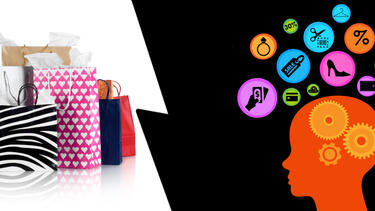Behavioral
Smart Choices for a Smoother Year: Research-Backed Tips for a Better 2026
Yale SOM faculty shared suggestions on creating space for what’s important, cultivating community, and making AI work for you in the new year.

When a Stock Market Theory Is Contagious
In a New York Times op-ed, Professor Robert J. Shiller explains that stock market movements are driven by popular narratives that spread like “thought viruses.” Secular stagnation—the idea that the global economy may languish for years to come—is the current story driving down the stock market. Whether true or false, the idea alone has the potential to erase five years of gains and create a bear market.
What Does an Economist Make of the Ice Bucket Challenge?
Somehow ice and cold water have become the social media phenomenon of the summer. Millions of people have shivered and screamed while dumping buckets of ice over their own heads, and a medical charity has tens of millions of dollars raised as a result. Yale Insights spoke with Yale economist Florian Ederer to try to make sense of all of this.

When Is One Motivation Better than Two?
Laboratory experiments have suggested that, counterintuitively, having both an internal motivation for completing a task and an external reward makes performance weaker. A study by Yale SOM’s Amy Wrzesniewski tested this idea in the real world, by examining how the motivations of West Point cadets affected their performance. The results have strong implications for how leaders can get the best performance from their organizations.
The Secret of Effective Motivation
What kinds of motives are most conducive to success? In a New York Times op-ed, Professor Amy Wrzesniewski and coauthor Barry Schwartz discuss their research looking at the motives of new West Point cadets and how they relate to success as Army officers.
Donors Give More When They Have a Sense of Belonging
Recent research, drawing on behavioral economics, suggests that donors make larger contributions to a nonprofit organization when they have a sense of active involvement in the organization's mission. In an op-ed for the New York Times, Professor Robert Shiller suggests that changes to legal and institutional structures could be powerful new tools to increase engagement and giving.
Celebrity Touch Raises Auction Prices
The degree of physical contact that a celebrity has with a piece of memorabilia affects how much collectors are willing to pay for it at auction, according to a study co-authored by Professor George Newman.
A Scientific Approach to Increasing Diversity in the Sciences
To reduce subtle biases that limit women and minority academic scientists, research universities should design diversity programs that adhere to rigorous scientific standards, according to a new paper co-authored by Professor Victoria Brescoll.
What’s Ahead for Financial Markets? An Interview with Robert Shiller
Nobel laureate Robert Shiller discusses some of the trends he currently sees in finance and the housing market.

Why You Buy What You Buy
Professor Ravi Dhar runs through how recent research in psychology helps explain how we all make decisions when shopping. When are you impulsive? When do you really think things through? When do you make the good long-term choice? And when do you go for the junk food?

Robert Shiller: Owning a Home Isn’t Always a Virtue
In the New York Times, Professor Robert Shiller writes that the United States should reduce government subsidies for homeownership, while finding another way to promote household saving.